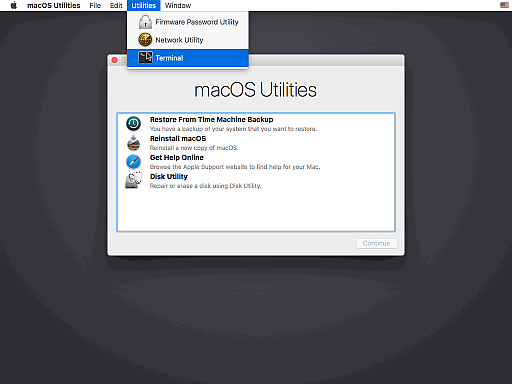Integrity Integrity For Mac
Program integrity activities are meant to ensure that federal and state taxpayer dollars are spent appropriately on delivering quality, necessary care and preventing fraud, waste, and abuse. Like other Medicaid administrative activities, program integrity responsibilities are shared between states and the federal government.
Contracted managed care organizations also have specific program integrity responsibilities. Federal program integrity activities The CMS Center for Program Integrity is responsible for the Medicaid Integrity Program, a comprehensive federal strategy to reduce Medicaid provider fraud, waste, and abuse. Managed care is a component of many initiatives including periodic reviews of state program integrity operations, training, and technical assistance for states. CPI publishes information on noteworthy practices to address fraud and abuse in Medicaid managed care and provides state staff with training on managed care program integrity. CPI has also developed a managed care plan compliance toolkit with guidance to assist Medicaid managed care plans in preventing, detecting, and reporting Medicaid fraud, waste, and abuse. As noted earlier, managed care program integrity also includes many broader program oversight elements that, at the federal level, is the responsibility of the Center for Medicaid and CHIP Services (CMCS) within CMS.
CMCS reviews state documents (e.g., waivers and MCO contracts) to ensure that managed care programs comply with federal statutes and regulations. For example, CMCS annually reviews and approves each MCO contract and any contract amendments to ensure they include all required provisions, including those relating to program integrity (described in detail below).
Federal efforts have primarily focused on oversight and accountability for the accuracy of the payments made by states to MCOs. For managed care payments, the fundamental payment principle is that capitation rates be actuarially sound (42 CFR 438.4). States are required to submit for federal review the capitation rates that correspond to the populations and services covered in the managed care program, actuarial certifications for those rates, and data and documentation to support these certifications. CMCS reviews the capitation rates for each Medicaid managed care program to determine whether the payments are actuarially sound and support the necessary contract terms to deliver high-value, high-quality services to enrollees. CMCS also collects managed care encounter data (information relating to the receipt of any items or services by an enrollee under an MCO contract) from the states, which are required to collect them from the MCOs. It uses these data to measure state and plan performance, monitor compliance with federal rules, and support program integrity efforts. The federal government has statutory authority to disallow Medicaid matching payments if states fail to submit complete and accurate data, although to date it has not exercised this authority (section 1903(i)(25) and (m)(2)(A)(xi) of the Social Security Act).


Other offices within CMS also have responsibilities relating to Medicaid managed care program integrity. For example, as required by federal law, the Office of Financial Management measures the rate of improper payments for all CMS programs. This includes a review of a random sample of capitation payments made by state Medicaid programs to MCOs to determine whether they were made in accordance with the relevant contracts and capitation rate schedules. The improper payment rate does not include an estimate of erroneous provider payments made by Medicaid MCOs.
Integrity Integrity For Macon Ga
Lastly, while not within CMS, the HHS OIG is responsible for overseeing the integrity of all HHS programs, including Medicaid. The OIG conducts audits and investigations of both state Medicaid programs and CMS and evaluates aspects of the Medicaid program in order to make recommendations focused on improving efficiency and reducing fraud, waste, and abuse. The OIG also oversees the state-based Medicaid Fraud Control Units (MFCUs). State program integrity activities All state Medicaid programs, regardless of delivery system design, must comply with federal Medicaid program integrity requirements. For example, states must have mechanisms to identify, investigate, and refer suspected fraud and abuse cases to appropriate state and federal law enforcement and cooperate with federal program integrity initiatives including the Medicaid Integrity Program and the Payment Error Rate Measurement (PERM) program (42 CFR Part 455). In addition, all states have a MFCU (which operates independently from the Medicaid program) to investigate and prosecute Medicaid provider fraud, including fraud committed by providers under contract to Medicaid managed care plans.
States with managed care programs have two additional program integrity responsibilities: conducting program integrity activities for the managed care program and making sure MCOs maintain effective program integrity programs of their own.